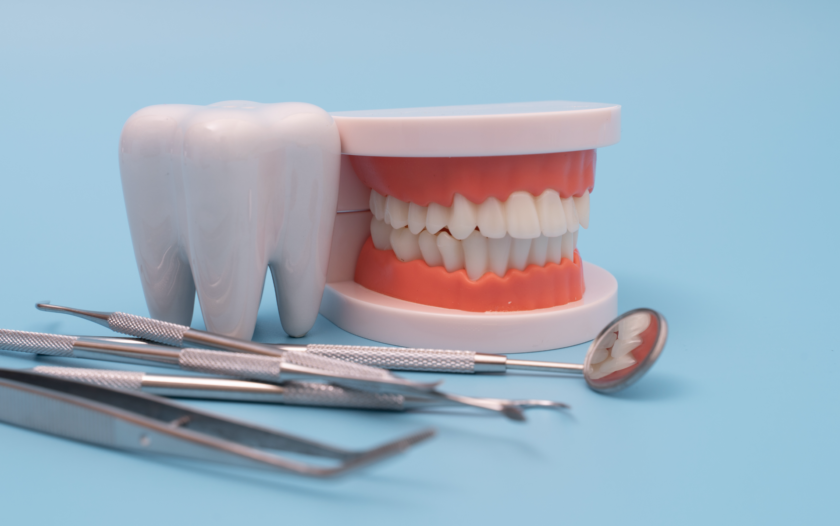What Is the Average Dental School Debt?
About Kevin
Kevin is a former fintech coach and financial services professional. When not on the golf course, he can be found traveling with his wife or spending time with their eight wonderful grandchildren and two cats.
Read full bio
At a Glance
Everyone wants to do what they love for a living. They say if you do that, you’ll never work a day in your life. Unfortunately, there could be a cost to going into your chosen profession. If you want to be a dentist, the average cost for an education in that field, according to the American Dental Education Association (ADEA), is over $300,000.
To put that in perspective, the average annual salary for a dentist in 2021 was $178,260. That breaks down to just under $15,000 a month. Assuming a 7% student loan interest rate, $300,000 in dental school debt would cost the dentist $3,500 a month for 10 years. That’s nearly 25% of your income for the first decade. Ask yourself if you’re willing to pay that price before you enroll in school.
Consolidating Dental School Debt
This doesn’t really count as medical debt consolidation because student loans are student loans, regardless of your choice of major. It’s important to understand the distinction if you’re searching for a lender to consolidate your dental school debt. What you’re looking for is an unsecured personal loan with an interest rate that is lower than the 7% you’re paying.
Getting that lower interest rate will require an excellent credit score. The average interest rate on unsecured personal loans is 9.49%, but individuals with credit scores over 700 could qualify for interest rates as low as 3%. This is something to keep in mind when you first enter an undergraduate program. Take good care of your credit. You’ll need it later.
Another option for a lower interest rate is to take out a secured loan if you have the material assets to put up as collateral. A good example of this is a home equity loan or home equity line of credit (HELOC). Both offer interest rates as low as 3%, but of course you need to own a home and have enough equity to secure the full loan balance.
Lower Your Monthly Payments
If you’re okay with carrying the debt, but you need more time to pay it, consider applying for an income-driven repayment plan that caps off your monthly payments at 10% or 20% of your income. These are usually available for federal student loans. You’ll extend the life of the loan to 20 or 25 years by doing it, but your monthly obligation will be less.
This can also be accomplished with a debt consolidation loan, though many lenders are reluctant to offer 20 or 25-year payment terms on unsecured loans. That doesn’t mean it’s impossible. At the very least, you could make your current payments for a few years, then apply for a 10-year loan on the balance if you still need reduced monthly payments.
Student Loan Forgiveness and Forbearance
It’s unlikely that a comprehensive student loan forgiveness program is coming from the Biden administration any time soon. Congress is divided on the issue and President Biden has been reluctant to offer student loan debt forgiveness via executive order. The programs that do exist, like Public Service Loan Forgiveness (PSLF), are limited in scope and availability.
Federal student loan forbearance, which absolves borrowers from making payments or accumulating interest on their federal student loans, has been extended to May 1, 2022. The extension was unexpected and only due to the recent rise in Omicron cases in the U.S.. Borrowers should prepare to resume payments when that period expires.
Frequently Asked Questions
How long does it take to pay off dental school debt?
Dental school debt is generally paid off over a 10-year period, but that time can be extended with a debt consolidation loan or modifying the loan with an income-driven repayment plan.
Are dentists able to pay off their debt?
The average salary for a dentist in 2021 was $178,260, while the average dental school debt was just north of $300,000. Dentists can pay $3500 a month to pay that off in 10 years.
Sources
- https://www.ibisworld.com/industry-statistics/market-size/dentists-united-states/
- https://www.nerdwallet.com/article/loans/student-loans/average-dental-school-debt
- https://www.adea.org/godental/money_matters/educational_debt.aspx
- https://www.asdanet.org/index/get-involved/advocate/issues-and-legislative-priorities/Dental-Student-Debt
- https://educationdata.org/average-dental-school-debt
- https://www.agd.org/dental-practice-advocacy-resources/advocacy-resources/key-federal-issues/student-debt
- https://www.bankrate.com/loans/student-loans/average-dental-school-debt/
- https://studentloanhero.com/featured/dental-school-debt-worth-it/
- https://www.studentloanplanner.com/average-dentist-salary-student-debt/









